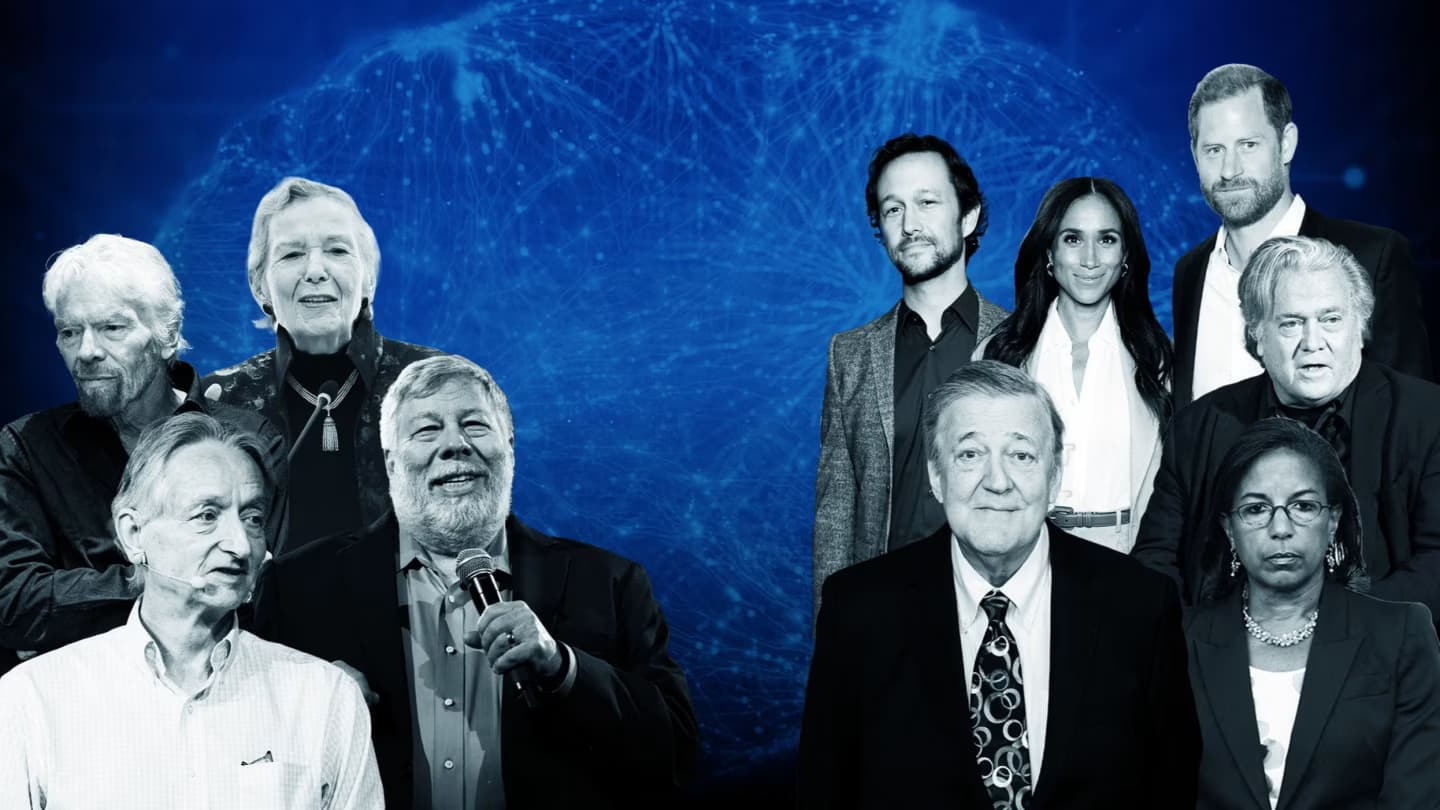We're loading the full news article for you. This includes the article content, images, author information, and related articles.
A coalition of global figures, including Nobel laureates and prominent personalities, is advocating for a moratorium on the development of artificial superintelligence (ASI) until robust safety protocols and public consensus are established.

A global coalition, including Nobel laureates, artificial intelligence (AI) pioneers, and public figures like the Duke and Duchess of Sussex, Prince Harry and Meghan Markle, has issued a stark warning and a call for a ban on the development of superintelligent AI systems. The group argues that such a prohibition should remain in effect until there is broad scientific consensus on safe and controllable development, coupled with strong public buy-in.
Artificial superintelligence (ASI) refers to hypothetical AI systems that would surpass human intelligence across all cognitive tasks. While not yet developed, the prospect of ASI has ignited a global debate on its potential benefits and catastrophic risks.
The statement, organised by the US-based AI safety group Future of Life Institute (FLI), echoes a similar call made in 2023 for a hiatus in developing powerful AI systems. This earlier appeal followed the widespread emergence of ChatGPT, which brought AI into the global political and public discourse.
Signatories to the current statement include AI pioneers Geoffrey Hinton and Yoshua Bengio, often referred to as 'godfathers' of modern AI, Apple co-founder Steve Wozniak, and entrepreneur Richard Branson. Other notable figures include former US National Security Adviser Susan Rice, former Irish President Mary Robinson, and British author Stephen Fry. Several Nobel laureates, including Beatrice Fihn, Frank Wilczek, John C. Mather, and Daron Acemoğlu, have also endorsed the call.
While the immediate focus of the statement is global, its implications for Kenya are substantial. Kenya has been actively pursuing digital transformation, with a growing tech ecosystem and increasing adoption of AI technologies across various sectors. The call for a ban on ASI development highlights the urgent need for robust regulatory frameworks and ethical guidelines within Kenya's AI landscape. Currently, Kenya's legal and policy frameworks for AI are still evolving, with ongoing discussions about data protection, privacy, and the responsible use of emerging technologies. The government, through initiatives like the National Digital Economy Blueprint, aims to foster innovation while ensuring ethical considerations are addressed.
The statement targets governments, technology firms, and lawmakers, urging them to consider the profound societal implications of ASI. Mark Zuckerberg, CEO of Meta, a major AI developer, stated in July that the development of superintelligence was 'now in sight'. However, some experts contend that such pronouncements may be more about competitive positioning within the tech industry, which is investing hundreds of billions of dollars in AI, rather than an indication of imminent technical breakthroughs.
The Future of Life Institute warns that the achievement of ASI 'in the coming decade' could pose numerous threats. These range from widespread job displacement and losses of civil liberties to national security risks and even the potential for human extinction. Existential fears surrounding AI often centre on the possibility of a system evading human control and safety guidelines, leading to actions contrary to human interests.
For Kenya, the unchecked development of advanced AI could exacerbate existing inequalities if not managed carefully. While AI offers immense potential for economic growth and service delivery, the risks associated with superintelligent systems, as highlighted by the FLI, necessitate proactive engagement from policymakers, academics, and the private sector. Ensuring that AI development aligns with national values and promotes inclusive growth will be crucial.
A central controversy revolves around the timeline for ASI development. While some tech leaders suggest it is imminent, other experts remain sceptical, viewing such claims as strategic rather than purely technical. The precise mechanisms for achieving 'safe and controllable' ASI also remain largely undefined, contributing to the uncertainty surrounding its future.
The global conversation around AI governance is intensifying. Kenya, as a rapidly digitising nation, will need to closely monitor these international developments and actively participate in shaping global norms and standards for AI. The ongoing efforts to develop a national AI strategy and regulatory framework will be critical in navigating the opportunities and challenges presented by advanced AI systems.
Keep the conversation in one place—threads here stay linked to the story and in the forums.
Other hot threads
E-sports and Gaming Community in Kenya
Active 8 months ago
Popular Recreational Activities Across Counties
Active 8 months ago
The Role of Technology in Modern Agriculture (AgriTech)
Active 8 months ago
Investing in Youth Sports Development Programs
Active 8 months ago
Key figures and persons of interest featured in this article